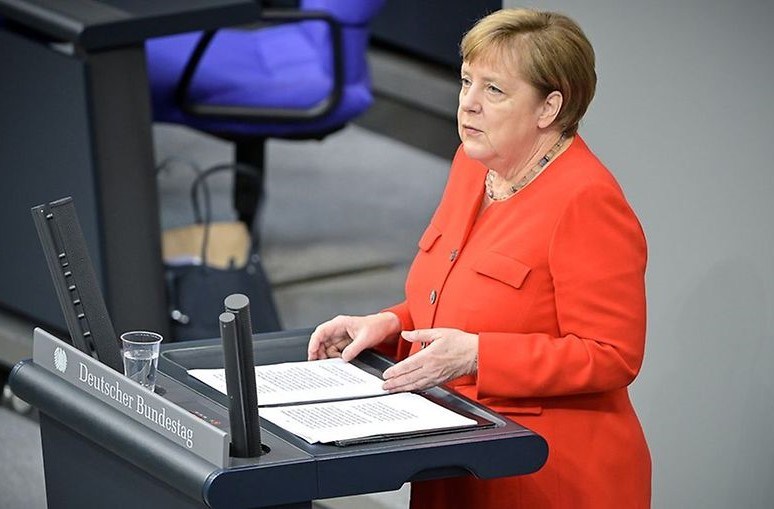On 1 July 2020, Germany will take over the presidency of the Council of the European Union. During a six-month period, Germany will lead the work of the Council during the recovery from the corona virus crisis, building co-operation and agreement between member states.
“No country can weather the crisis alone, in isolation,” declared Chancellor Angela Merkel in the German Bundestag on 18 June. “Europe needs us, just as we need Europe”. Europe is not only a historical legacy but “a project that will lead us into the future”.
A senior German EU official told journalists yesterday (29 June) that taking over the presidency in the middle of the still on-going corona crisis was not what his country had expected and prepared for. “Our presidency has been nicknamed the ‘Corona presidency’.”
The presidency rotates among the EU member states every six months. During this 6-month period, the presidency chairs meetings at all levels in the Council. Member states holding the presidency work together in groups of three, called “trios”. The new trio is made up of Germany, Portugal and Slovenia.
Germany will be facing crucial and difficult challenges as its predecessor Croatia did when it assumed the presidency on 1 January 2020. “Considering that the Croatian presidency took place during extremely difficult circumstances, it did a pretty good job,” the German official summarized.
The coronavirus pandemic had not yet hit Europe but Croatia started the presidency at a time of change for the EU, following the elections of a new European Parliament, a new European Commission, and Brexit, with a member state leaving the EU for the first-time in a cloud of uncertainty about its future relations.
Germany will have to continue with unfinished business from the Croatian presidency while EU member states are struggling with lifting the lockdown restrictions at the height of pandemic, returning to a “new normal” and fearing a second wave. The pandemic brought havoc on the ambitions of the Croatian presidency.
No agreement on EU’s long-term budget for 2021 – 2027 could be reached, a comprehensive solution to migration was not presented, accession negotiations with Albania and North Macedonia did not start, rule of law issues in Hungary and Poland were not resolved and the “Conference on the Future of Europe” could not be launched as planned.
At least in the beginning, the German presidency will have to continue to work under the same constraints as the Croatian presidency without any physical meetings. According to the German source, the absence of physical meetings, where participants can interact with each-other, had a negative effect on the efficiency of the meetings.
“Virtual meetings are technically complicated and you don’t even know if all participants are present all the time and if information is leaked in real time.” The European Council summit scheduled on 17 – 18 July will probably be the first physical meeting. Physical meetings are expected to be possible and increase gradually from September.
The overriding priority of the German presidency will be to fight the pandemic and its impact on the economy and society by a recovery plan. Planning the exit strategy is important and one of the first decisions to be taken already today (30 June) is the opening of EU’s external borders to travellers from 15 non-EU countries. “The list of countries will have to be constantly revised.”
Other tasks on Germany’s “must do list” are the negotiations with United Kingdom to avoid a hard Brexit, the migration package and the European green deal.
The presidency will be divided into three phases. In the first phase, the aim is to arrive at a unanimous agreement in July by all member states on the EU budget (multi-annual financial framework, MFF) and the components and conditions of the recovery fund. Germany, while being the biggest contributor to the EU budget, will do its utmost to facilitate an agreement and keep the EU together, he promised.
The Brexit negotiations have been treading water until now, according to the German source. In the second phase, during September – October, the Brexit negotiations will have to be accelerated so that an agreement can be reached by end October in time to be ratified by all parliaments. “A deal is possible provided that a more pragmatic and less ideological approach is applied.”
The migration package has been postponed until after the talks on the EU budget and will be discussed in the third phase of the presidency. Here the German official was less optimistic and did not expect that an agreement will be easily reached.
The long-awaited conference on the future of Europe will take place during the second half of the German presidency when hopefully the conditions will allow for physical meetings.
M. Apelblat
The Brussels Times

